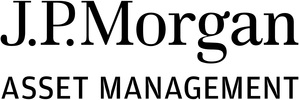J.P. Morgan Asset Management Explores the Impact of Baby Boomers' Retirement on Generation X, Millennials and the Markets
NEW YORK, Oct. 14, 2015 /PRNewswire/ -- J.P. Morgan Asset Management released new research that evaluates and compares the saving and investment experiences of baby boomers with those of today's younger generations, and derives potential implications for asset markets as boomers enter retirement en masse. The Investment Insights paper, "The long and short of baby boomer balance sheets," is written by Ben Mandel, Global Strategist, Multi-Asset Solutions, J.P. Morgan Asset Management, and Livia Wu, Quantitative Research Analyst, Multi-Asset Solutions, J.P. Morgan Asset Management.
"Baby boomers are entering retirement, bringing with them a median level of household assets considerably higher than that of their parents' generation and, in all likelihood, far exceeding that of the next generation as well," Mandel said. "We refer to this massive accumulation of assets - and the impact it is likely to have on the economy, markets and the retirement prospects of multiple generations - as baby boomers' financial exceptionalism."
The paper examines issues including how baby boomers' balance sheets got where they are today; which assets account for the dramatic growth in baby boomer wealth; and what it will take for subsequent generations to reach retirement with a comparable level of wealth. Key findings include:
- Baby boomers, benefiting from a long period of economic growth and stability during the bulk of their peak earning years, have quadrupled their aggregate net worth since the late 1980s. Nonfinancial assets, specifically residential property, played an important role in that wealth accumulation, accounting for two-thirds of median household assets in 2013.
- The next generation has not fared as well. For example, median household net worth for young to middle-aged members of Generation X has declined significantly relative to that for households of a similar age 25 years ago. Given lower current income growth and expected asset returns, the implied savings rate necessary for younger households to match the breadth of baby boomer balance sheets is incredibly large. These younger generations will need to modify saving and investment behaviors and adjust their wealth expectations accordingly.
- Baby boomers will also face trade-offs. Financial assets alone will not support their current levels of consumption expenditure in retirement. The sale of residential real estate is a likely outcome for many households, representing, in our view, an inexorable long-term headwind for the U.S. housing market.
Please view the full J.P. Morgan Investment Insights "The long and short of baby boomer balance sheets" paper here.
About J.P. Morgan Asset Management
J.P. Morgan Asset Management, with assets under management of $1.8 trillion, is a global leader in investment management. J.P. Morgan Asset Management's clients include institutions, retail investors and high net worth individuals in every major market throughout the world. J.P. Morgan Asset Management offers global investment management in equities, fixed income, real estate, hedge funds, private equity and liquidity. JPMorgan Chase & Co. (NYSE: JPM), the parent company of J.P. Morgan Asset Management, is a leading global asset management firm with assets of approximately $2.4 trillion and operations in more than 60 countries. Information about JPMorgan Chase & Co. is available at www.jpmorganchase.com.
J.P. Morgan Asset Management is the marketing name for the asset management businesses of JPMorgan Chase & Co. and its affiliates worldwide.
SOURCE J.P. Morgan Asset Management
Related Links
WANT YOUR COMPANY'S NEWS FEATURED ON PRNEWSWIRE.COM?
Newsrooms &
Influencers
Digital Media
Outlets
Journalists
Opted In



Share this article